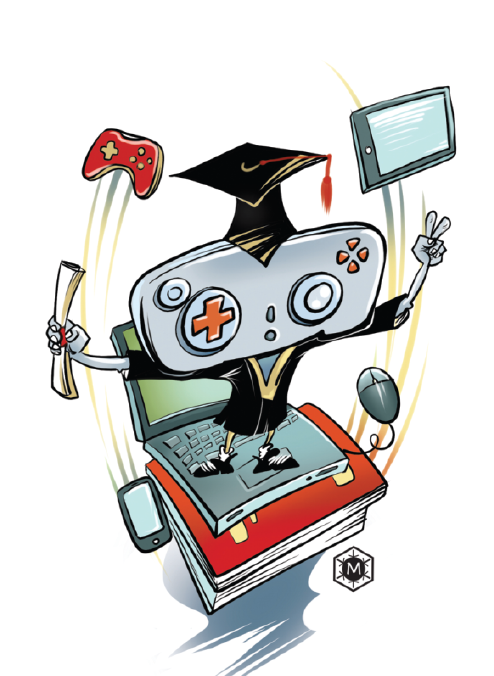E-games get the recognition they deserve
 |
| MA XUEJING/CHINA DAILY |
Many considered electronic games a nuisance. Most parents and teachers hated them. They are not good for children, agreed a majority of commentators. Even last year, a Xinhua News Agency commentary said they were "invoking violence among children" and kids' access to them should be restricted.
But electronic games are now getting the recognition they deserve. In December, Nanguang College of Communication University of China announced that it will offer a major in e-sport analysis from 2017, and its graduates will receive a bachelor's degree. This is a first in China.
The college has invited several domestic e-sport stars, such as Li Xiaofeng who won the world championship in the 2005 World Cyber Games, to be "profession tutors" for the new major to make the course more practical and attractive.
This shift would not have been possible without two major changes in society.
First, those born in the 1980s have either entered or will soon enter their 30s, so they have a bigger say in public opinions. According to a 2014 survey of 1,200 parents of kindergarten students in North China's Hebei province, 74.2 percent respondents said they allowed their children to play computer games for a certain time every day. The key point: most of these parents were born in the 1980s. And a survey of Grade 5 pupils in Beijing in 2012 showed the majority of their parents, most of them born in the 1970s, allowed them to play e-games only once a week. Call it a generation gap if you will.
The other change is the prospering of the e-sport industry. From January to June 2016, the domestic e-game sales increased to 78.8 billion yuan ($11.34 billion), up 30 percent year-on-year, and almost double that of 2014.
Pricewaterhouse Coopers even predicted China's e-game industry will grow on average 7.4 percent a year from 2016 to 2020, much higher than the global average of 4.8 percent and higher than the country's GDP growth. Given the prosperity of the e-game industry, the authorities as well as ordinary people can no longer afford to ignore e-sport.
In September 2015, the General Administration of Sport officially listed e-sport as the 78th sport program of China. In 2016, China had more than 170 million e-game players, which is a huge market with large commercial potential.
Reports show that students of the new major at Nanguang College will study core lessons such as e-sport analysis, operational analysis and psychology, as well as e-sport program management. And graduates who major in the subject will help strengthen the domestic e-game industry.
The industry, however, is far from complete, with its main pillars being professional players and software developers. It lacks such talents as club managers, investment consultants and activity organizers. Only when such talents work together can the domestic e-game industry realize its full potential.
We hope more colleges will follow Nanguang College's example, not only for the benefit of the e-game industry but also to open new channels for youths to find suitable jobs.
The author is a writer with China Daily. zhangzhouxiang@chinadaily.com.cn






















